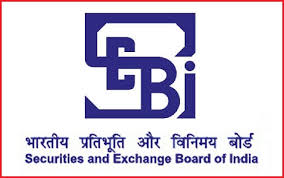Capital markets regulator Securities and Exchange Board of India (SEBI) is planning to take a number of steps to deepen it, including forcing thousands of non- or poorly-traded companies to delist and introducing more trading instruments, especially in the commodity space.
SEBI to delist 4,200 firms; warns erring promoters, auditors
These were among some of the steps it outlined with a meeting with senior editors today.
The news would come as relief to investors, whose monies are stuck in companies where no trading takes place.
SEBI chief UK Sinha said the regulator plans to force promoters of companies whose shares do not see active trading both at the main bourses and in regional exchanges to delist.
Such promoters will have to provide an exit route to investors, failing which they will be penalised.
India has about 8,000 listed companies but active trading hardly takes place beyond the top 1,000. As many as 1,200 companies have been suspended for trading for over seven years now, and these will be the first that will be forced to delist.
Besides, there are over 3,000 companies listed on various regional stock exchanges that have become defunct, Sinha said.
The exercise for over 4,200 listed firms would be completed this year. Such exercises would be taken up going forward to clean up the market from what the SEBI chief described as “a source of nuisance”.
He also warned of strong action against the auditors who close their eyes to the lapses in the financial accounts of listed firms.
“So far, we have had a hands-off approach on auditors, but we will take action if something serious comes to our notice. Auditors cannot go scot-free if they have been certifying the books for years without pointing finger at the lapses,” Sinha said.
SEBI also plans to launch more instruments, such as options contracts, in the commodity markets, and will also introduce more commodities for trading.
Sinha also discussed steps that the regulator has taken to ease entry for foreign investors in India, saying that easier FPI registration rules have paid off.
“The number of registered FPIs increased to 8,721 from 4,580 in 2014,” he said.
He also said costs of mutual fund and insurance products in India need to come down and said the regulator had invited former UIDAI chief Nandan Nilekani to advise it on creation of tech platforms for sale and purchase of mutual funds.
“We are also looking to tweak listing rules for startups,” he said.






